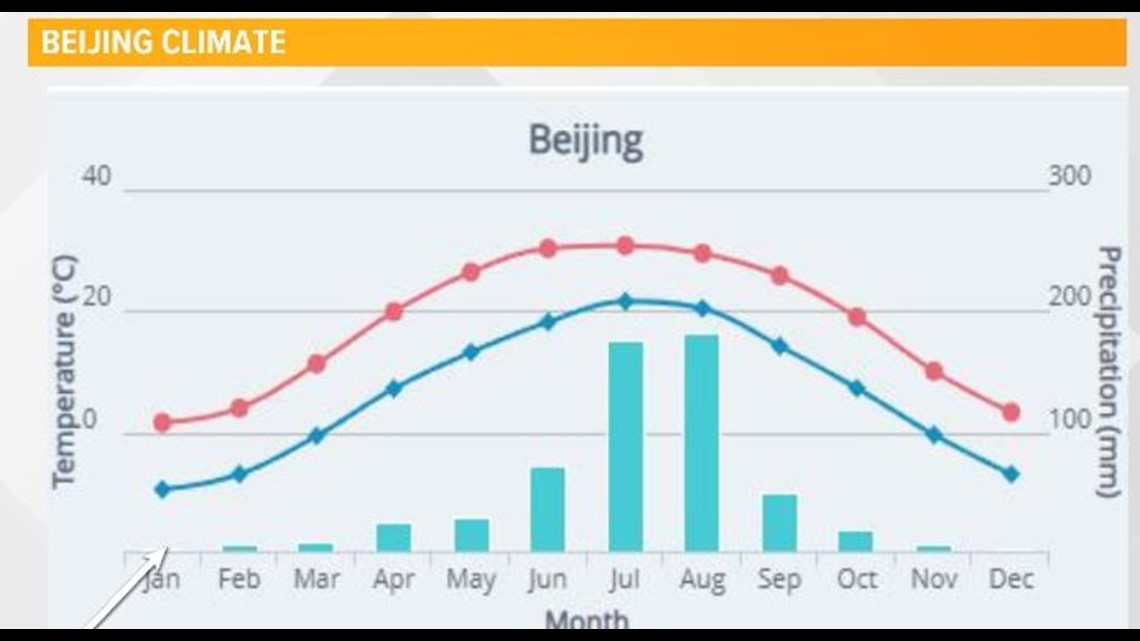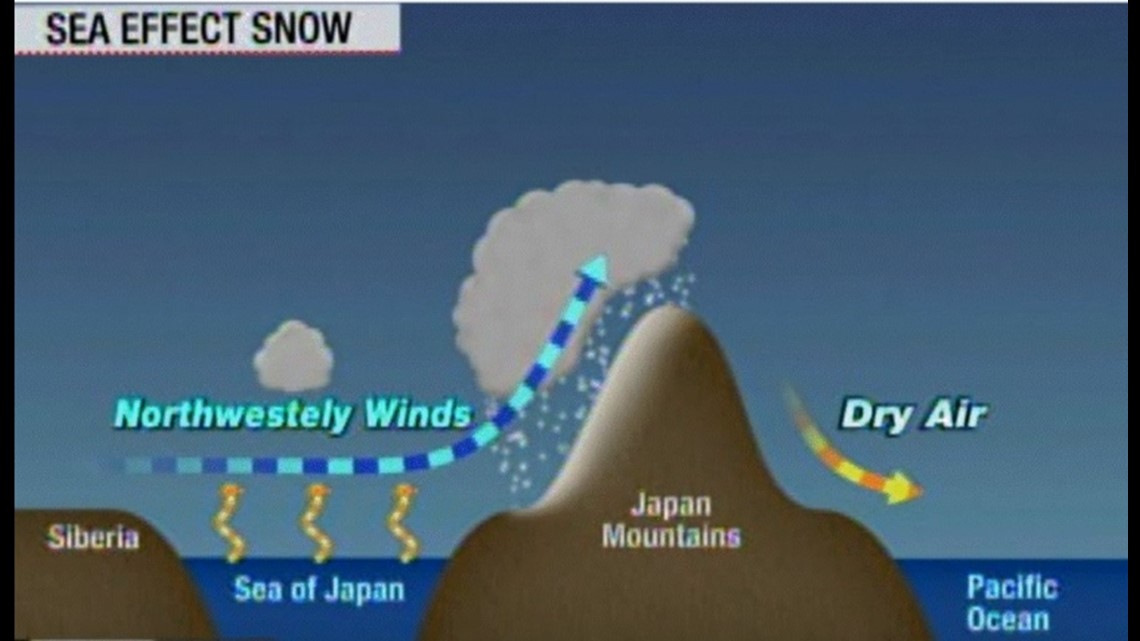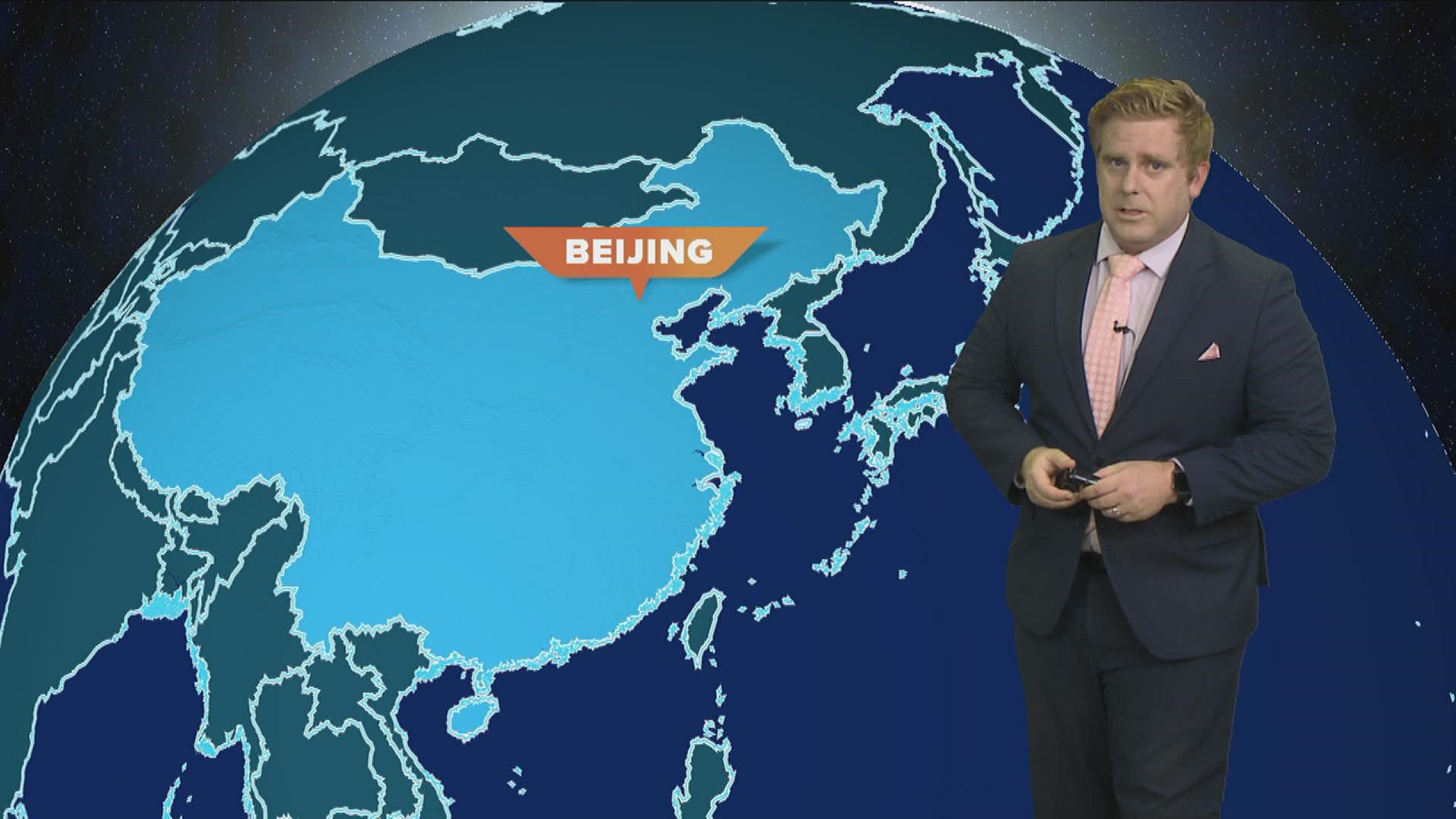BEIJING, China — The Olympics are underway in Beijing and while temperatures there are most certainly cold enough for the winter Olympics, the natural snow on the ground is rather lacking.
According to the Sport Ecology group, the Beijing Olympics is in fact almost entirely relying on artificial snow. This makes it the first Winter Olympics in history to do so. In the past, other locations like Sochi used natural snow and supplemented it with artificial snow to add extra layers to the base snowpack.
As far as what is better for the athletes, that is up for debate.
Artificial snow is easier to control as far as the density and timing, yet it tends to be harder and more compact than natural snow which is fluffier. So, for downhill slalom skiers artificial may be better, but for those hitting big air and looking for a soft landing, fresh natural powder is preferred.
Why is there a lack of natural snow?
It’s all about the placement of the Siberian high over Northeast Asia. I (Robert Speta) worked in Japan for a decade forecasting the weather. This time of year, the Siberian high dominates Northeast China creating frigid conditions but due to a lack of moisture and lift a limited amount of snowfall occurs.
According to the World Meteorological Agency December, January and February are the driest months for Beijing with little to no precipitation on average being reported in all of January.


So, the lack of snowfall is nothing new to this area of China.
What is interesting is just a few 100 miles away in Japan, a copious amount of snow is taking place thanks to the Sea Effect Snow Machine. Much like lake effect snow in the USA, in Japan, cold air from Siberia and Northeast China flows across the relatively warm waters of the Sea of Japan and collide with the Japanese Alps, creating some of the heaviest snowfall found anywhere on earth.
Winter Olympics were held in this snow belt across Japan in in 1972 in Sapporo and 1998 in Nagano.



